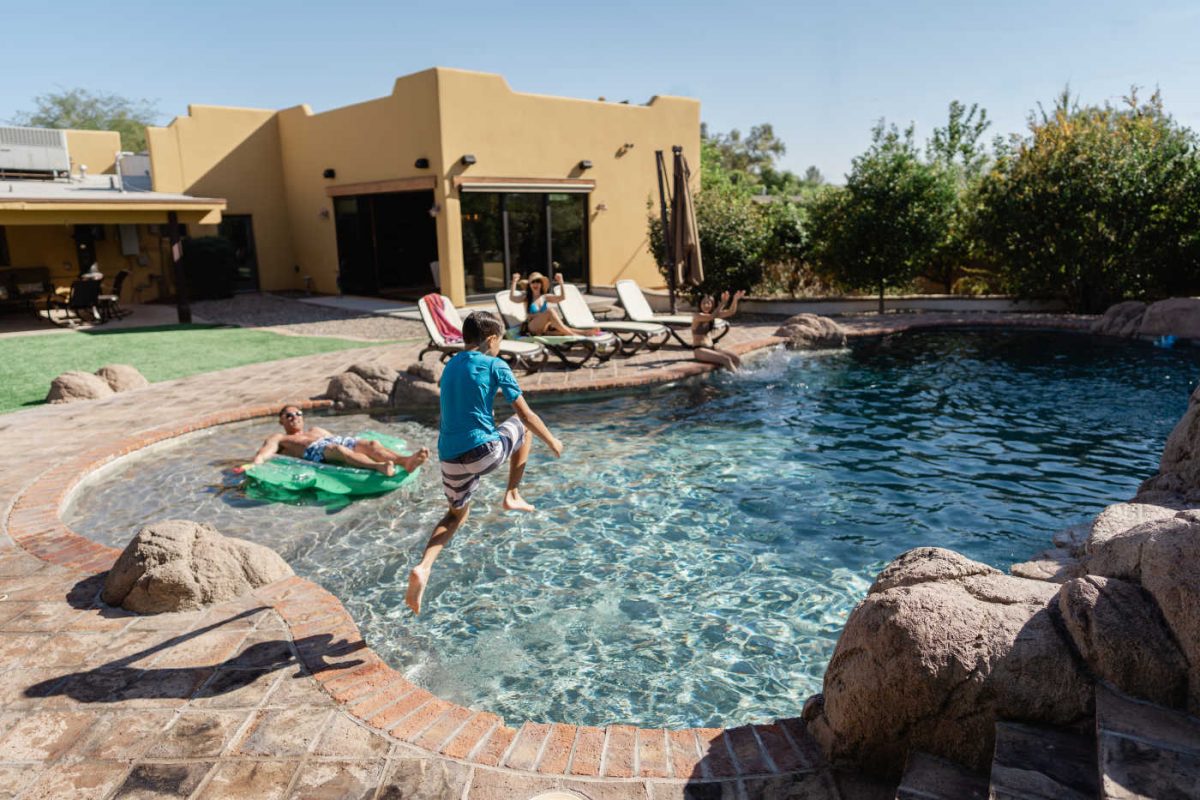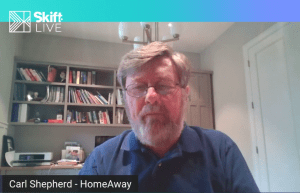Skift Take
It's a dire warning from one of the sector's most experienced founders and investors — but just don’t talk about trends until 2023, HomeAway's Carl Shepherd made a point to add.
The co-founder of HomeAway has likened the current spate of special purpose acquisition companies — or SPACs — to the build-up seen just before the dot com bubble burst in 2001.
Since the pandemic, hundreds of so-called “blank check companies” have been formed and there’s appetite for travel companies, in particular in the short-term rental space. But “the SPAC game has gotten crowded,” Carl Shepherd said.
Accor this week was also reported to be the latest company to dive into merger market.
“A lot in the pipeline will probably pull back,” he added, speaking at the Skift Live Short-Term Rental and Outdoor Summit. “There’s hundreds of billions tied up chasing unicorns. They’re called that for a reason. With that much money chasing so few opportunities, you realize it might not be the best time.”
The investor was talking moments after Sonder’s founder Francis Davidson spoke about his company’s plans, following its deal with Gores’ SPAC that valued the company at $2.2 billion.
Shepherd said that for Sonder, “the right things happened at the beginning of the year” for the urban-focused brand.
“It’s standing alone in the market, and its business model is as well positioned to succeed as it’s ever been,” he added. “But there’s never been a two billion-valued corporate travel company. I’m interested to see how Francis takes it forward. The valuation’s very rich, it almost feels like I’m back in 2001 before the first dotcom bust, when pets.com got valued at billions of dollars.”
During another session at the Summit, Sonder CEO Francis Davidson claimed that Sonder’s business is 80 percent leisure travel.
Shepherd has a vantage point, being a board member of the Moose Pond Acquisition Corp. SPAC, which was co-founded by RetailMeNot founder Cotter Cunningham and HomeAway co-founder Brian Sharples.
It’s No Longer Alternative
Speaking during the “Acquisitions and Investments in Short-Term Rentals: Predictions for 2021” panel, he also noted that during the pandemic, short-term rental accommodation should no longer be classified as “alternative accommodation” because it became the preferred accommodation — “and hotels had better figure that out.”
He also called on vacation-friendly destinations, such as Florida and San Diego, to ease their regulatory burdens on homeowners wanting to rent out their properties. “Litigate that and establish we can do it, then you can have cities begin to regulate it more appropriately,” he warned.
Online travel agencies operating in the vacation rental space also needed to “stop looking the other way” on this, he added, otherwise growth will be stifled.
Yet despite the rapid growth in the short-term rental sector over the past year, Shepherd said he was reluctant to pinpoint trends until 2022 was behind us.
“When there’s not a pandemic, how many parents really do want to spend two weeks with three kids in a RV? I think we’ll find that out,” he said.
CORRECTION: This article has been updated to clarify Sonder has said its business is 80 percent leisure travel. It also previously stated Shepherd formed Moose Pond Acquisition Corp.
Have a confidential tip for Skift? Get in touch
Tags: homeaway, short-term rentals, skift live, sonder, spac, stro2021, vrbo
Photo credit: A Vrbo property. In 2015, Expedia Group acquired HomeAway, and VRBO was one of HomeAway's leading brands. Expedia retired the HomeAway brand in favor of Vrbo. VRBO

